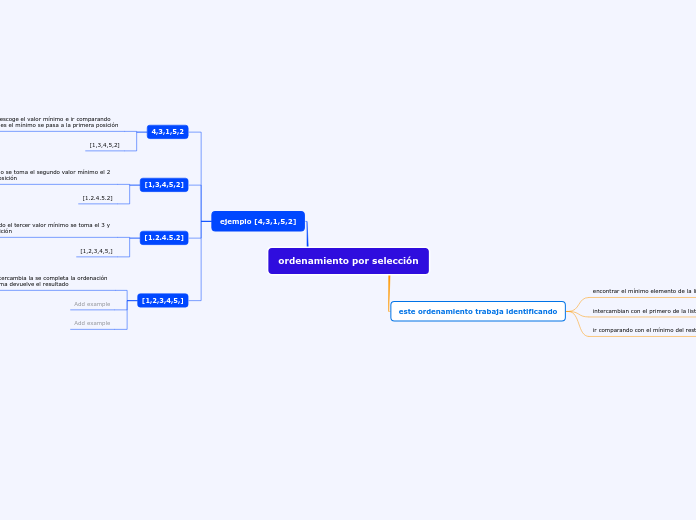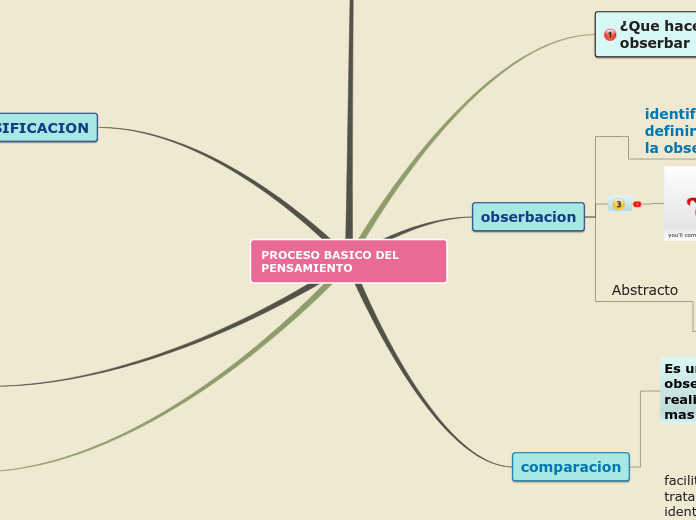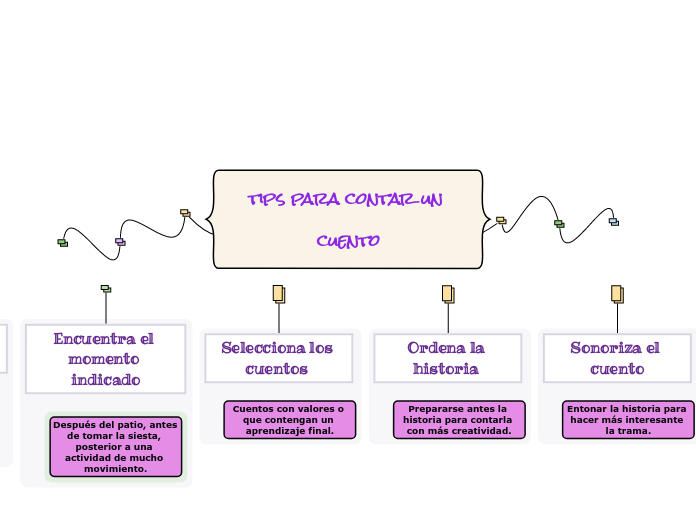ordenamiento por selección
In linguistics, syntax is the set of rules, principles, and processes that govern the structure of sentences in a given language, usually including word order.
ejemplo [4,3,1,5,2]
A complex sentence is a sentence that contains an independent clause and one or more dependent clauses.
An independent clause can stand alone as a sentence, but a dependent clause even though it has a subject and a verb cannot stand alone.
An appositive clause follows another noun or noun phrase in apposition to it; that is, it provides information that further identifies or defines it.
Add example
con este intercambia la se completa la ordenación y el programa devuelve el resultado
The subject clause is a dependent clause that acts as a subject.
[1,2,3,4,5,]
en el siguiente recorrido el tercer valor mínimo se toma el 3 y se intercambia de posición
A predicative clause may be introduced by conjunctions - that, whether, whether... or, as, as if, as though, because, lest, the way - or connectives.
The latter may be conjunctive pronouns - who, whoever, what, whatever, which - or conjunctive adverbs - where, wherever, when, whenever, how, why.
[1.2.4.5.2]
en el segundo recorrido se toma el segundo valor mínimo el 2 y se intercambia de posición
4,3,1,5,2
The object clause is a phrase on which a verb performs an action. It falls at the end of a sentence, and is governed by a verb or a preposition.
[1,3,4,5,2]
en este proceso de escoge el valor mínimo e ir comparando con los valores el 1 es el mínimo se pasa a la primera posición
Topic principal
este ordenamiento trabaja identificando
ir comparando con el mínimo del resto y asi sucesivamente
intercambian con el primero de la lista
encontrar el mínimo elemento de la lista









